Athletic Mouthguards – Pasadena, TX
Getting the Bite on Mouthguards
Helmets, knee pads, shin guards…if you’re an avid athlete or the parent of one, you know the importance of proper protective gear. But did you know that up to 40% of all sports injuries involve the face? Protect your smile and your mouth with comfortable, custom-molded athletic mouthguards from our Pasadena, TX dental team to dramatically reduce the risk of sports-related oral injury. Contact dental team to find out how you can get your customized mouthguard today.
Why Choose Pasadena Family Dentistry for Athletic Mouthguards?
- Fully Customized Oral Appliances
- Thoroughly Explained Treatment & Financing Options
- Comfortable, Homey Dental Office
What is an Athletic Mouthguard?
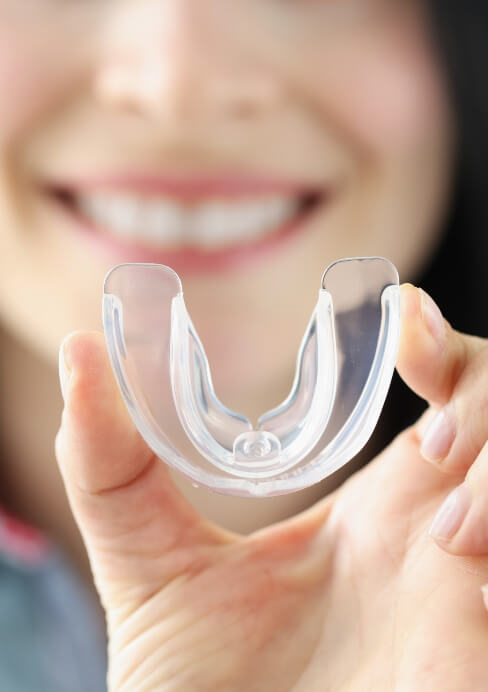
A mouthguard is a comfortable piece of athletic gear that fits over your teeth and can help protect your smile as well as your lips, tongue, face, and jaw. New research indicates that mouthguards can even reduce the severity of concussions.
While hockey, boxing, and rugby players would obviously benefit from mouthguards, others, like bicyclists, weightlifters, and gymnasts, still make the ADA’s list of athletes who need mouthguards. This may sound excessive, but studies show that 13 to 39% of all dental injuries are sports-related. Because the face is an important part of a person’s image, self-confidence, and sometimes even success, it’s better to be safe than toothless!
Before facemasks and mouthguards were required in football, half of all players’ injuries occurred in the mouth. During the playing season, players had a one in ten chance of experiencing a mouth injury. Once high schools and colleges began requiring facemasks and mouthguards, the number of injuries reported dropped by 200,000 per year. Naturally, dentists and the ADA recommend mouthguards for adults and children in any recreational activity that poses the risk of injury to your mouth.
Types of Athletic Mouthguards
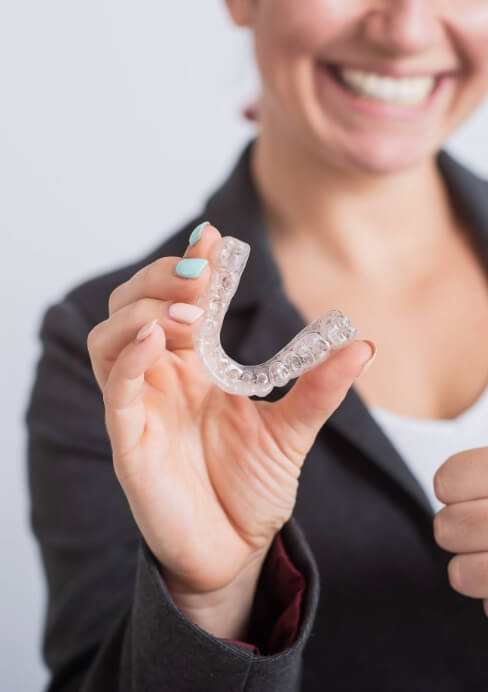
Not all mouthguards are the same. Where your mouthguard came from and how it was made can make a big difference in the quality of the protection that it offers. There are three main types of mouthguards: ready-made mouthguards, mouth-formed mouthguards, and custom-made mouthguards. Here’s how they stack up.
Ready-Made Mouthguards
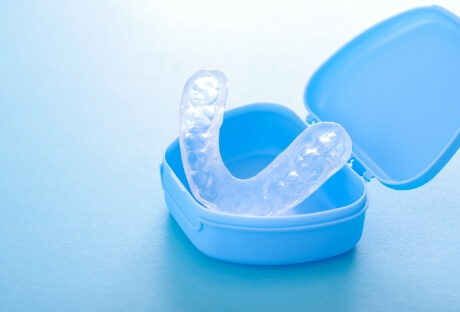
You may have seen ready-made mouthguards in a department or sporting goods store. These generic mouthguards are inexpensive and readily available. Unfortunately, because they are not custom-fitted, they may seem bulky and uncomfortable in your mouth. Ready-made mouthguards are secured by closed jaws which means that when an athlete wears a ready-made mouthguard, speaking and breathing may be difficult.
Mouth-Formed Mouthguards
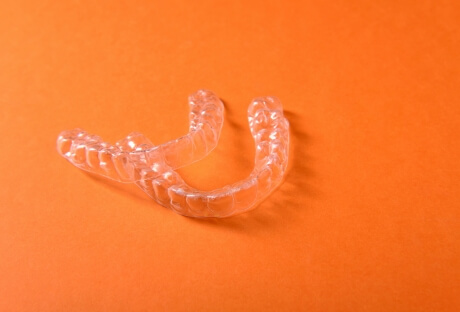
If you’re looking for something that is more custom fit to your mouth, you might consider mouth-formed mouthguards. Acrylic, shell liner mouthguards provide a comfortable and secure fit over your natural teeth. Unfortunately, many users report that this mouthguard can have an unpleasant odor or taste. It can also harden over time and lose its flexibility. Another type of mouth-formed mouthguard, the thermoplastic style, can be customized by heating it in water and then biting it. It will take on the shape of your bite. While these maintain their flexibility, they can feel bulky.
Custom-Made Mouthguards
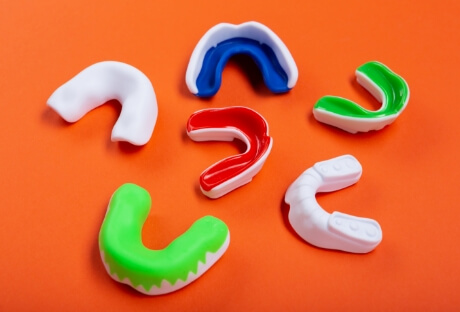
The best solution is a custom-made mouthguard, which is comfortable, practical, and protective. A dentist or lab technician creates a custom-made mouthguard after taking impressions of your teeth.
Before you purchase any mouthguard, talk to your dentist. Special mouthguards or mouth protectors are recommended for patients with braces, removable bridges, dentures, a protruding jaw, or a cleft palate.
Athletic Mouthguard Care
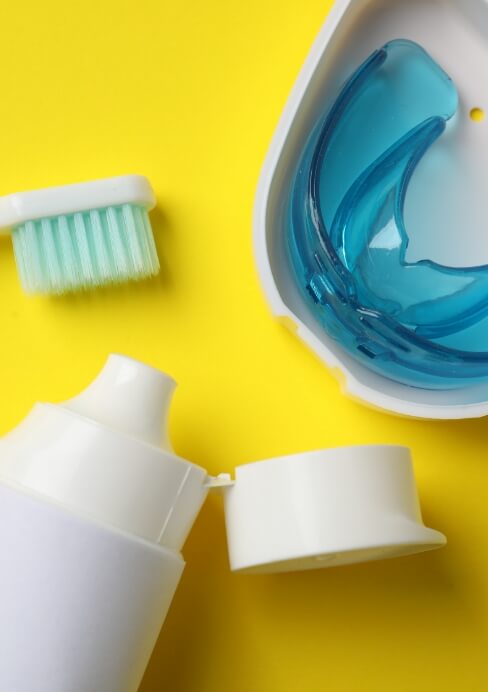
Always wear your mouthguard during practice and games. Never chew on it because you may weaken the material and decrease its effectiveness. Holes, tears, and damage to the mouthguard may irritate your gums or soft tissue. If you notice damage, replace your mouthguard immediately.
Before and after each use, check your mouthguard for damage and rinse it with cold water or mouthwash. You should regularly clean your guard with a toothbrush and toothpaste or in a solution of soapy water. Be sure to rinse it well and store it in a firm, perforated container. Avoid placing it in direct sunlight or high temperatures.
Most importantly, you should schedule regular dental check-ups, including one right before the playing season starts. When you see your dentist, bring your mouthguard and discuss any problems or concerns you may have.
